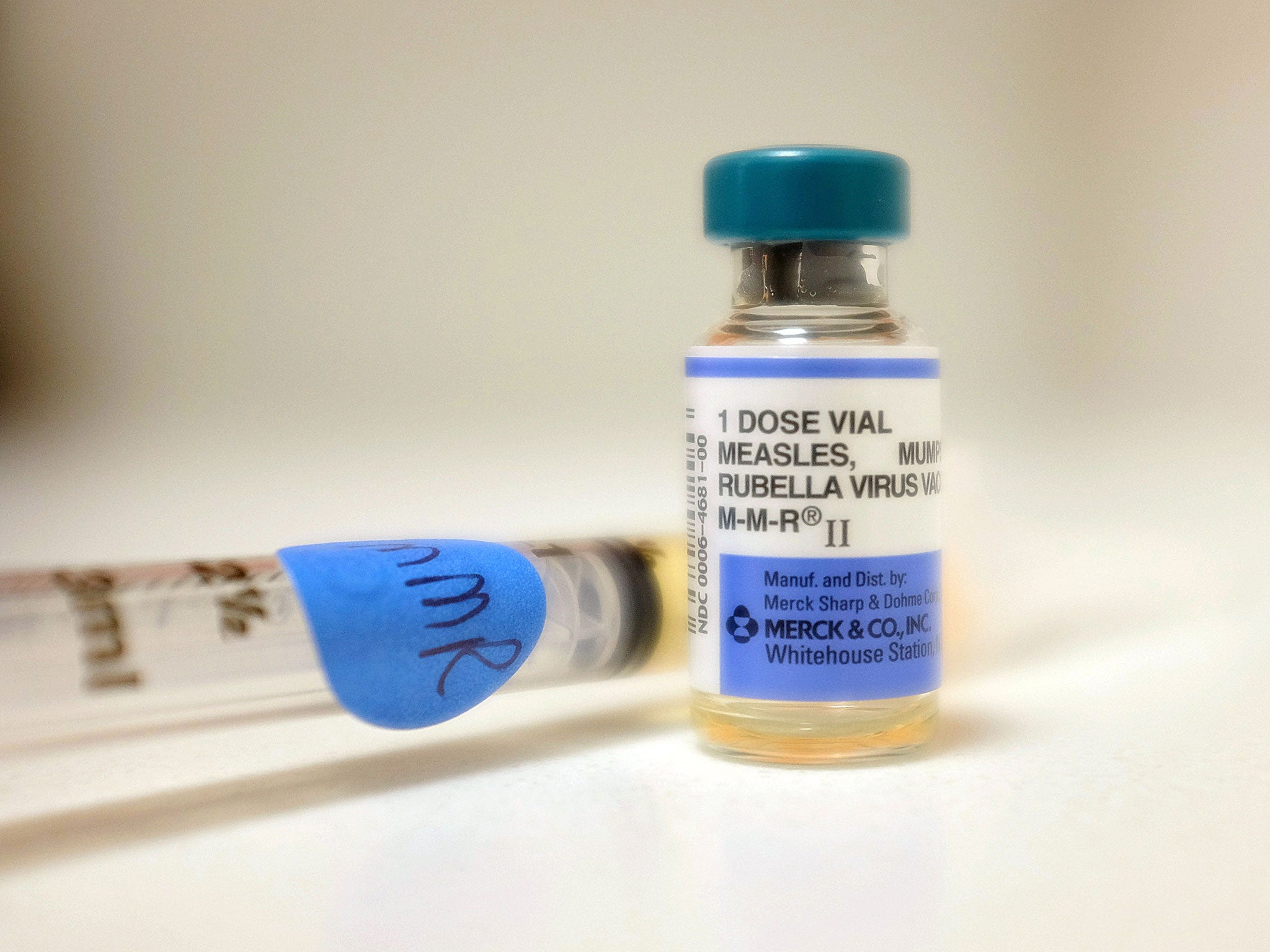London measles outbreak raises public health concerns
Twenty cases have been reported since the beginning of February

Your support helps us to tell the story
From reproductive rights to climate change to Big Tech, The Independent is on the ground when the story is developing. Whether it's investigating the financials of Elon Musk's pro-Trump PAC or producing our latest documentary, 'The A Word', which shines a light on the American women fighting for reproductive rights, we know how important it is to parse out the facts from the messaging.
At such a critical moment in US history, we need reporters on the ground. Your donation allows us to keep sending journalists to speak to both sides of the story.
The Independent is trusted by Americans across the entire political spectrum. And unlike many other quality news outlets, we choose not to lock Americans out of our reporting and analysis with paywalls. We believe quality journalism should be available to everyone, paid for by those who can afford it.
Your support makes all the difference.Public Health England (PHE) is urging people to make sure they are up-to-date with the Measles Mumps and Rubella (MMR) vaccine and to be aware of the symptoms of measles due to an increase in confirmed cases over the last few weeks.
The warning comes after 20 cases of measles were reported with 12 being in London and the east of England, three cases in Cambridge, two in Essex and three in Hertfordshire.
There were 91 cases in England the whole of last year in comparison.
It was mainly diagnosed in adolescents and young adults who had not been vaccinated. Many of which have been admitted to hospital.
Measles is an infectious viral disease with symptoms such as fever and a red rash. Normally it is more common with children but can be more severe to adults. Due to the vaccination, it is uncommon in the UK.
In a statement, Dr Kevin Brown, Deputy Director of the Virus Reference Department at PHE, said:
“While measles is now relatively uncommon in England thanks to the MMR vaccine, those who are unvaccinated, or not fully vaccinated, remain susceptible to the disease.
“The cases we have seen recently have been confirmed mainly in adolescents and young adults.
“It’s important to be aware that it’s never too late to have the vaccine, so if you’ve not received two doses of the vaccine in the past – or you’re unsure – speak to your GP. There’s no harm in receiving an additional dose where there is any uncertainty.”
In 2013 Swansea saw a measles epidemic with a total of 1,219 cases.
Dr Brown told the BBC: “I don't think it will be of the numbers we had for the Swansea outbreak, which was predominantly affecting school-age children.
”But there is still the potential for us to have an increasing number of cases, especially in young adults and they are the ones that tend to be hospitalised and don't do as well.“
Signs to be aware of include cold-like symptoms, sore red eyes, high temperature of about 40C or a red-brown blotchy rash. The initial symptoms develop about 10 days after a person is infected.
Dr Brown said: “If you experience these symptoms seek medical attention, but be sure to phone ahead before you visit your GP surgery so arrangements can be made to prevent others from being infected.”
Join our commenting forum
Join thought-provoking conversations, follow other Independent readers and see their replies
Comments